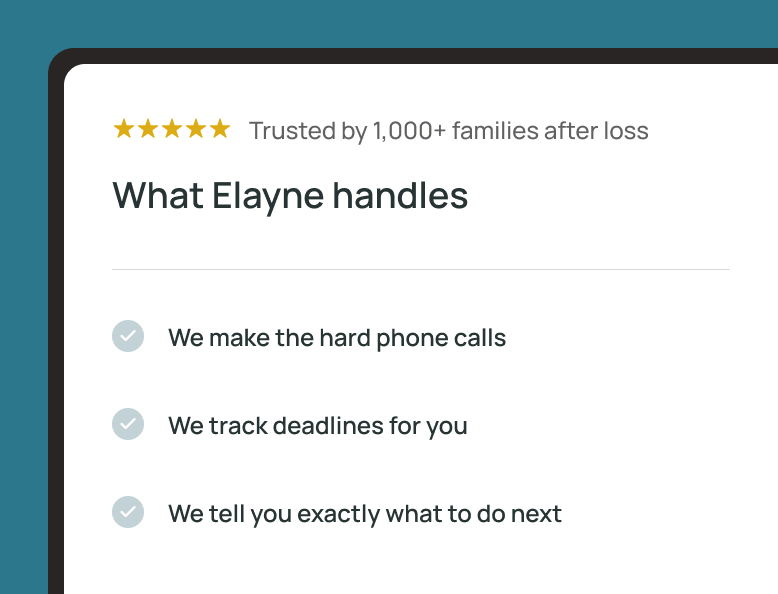Losing a loved one is often made even more challenging with needing to simultaneously navigate legalities of estate settlement in addition to your grief. This is compounded even more when probate becomes necessary—the court-supervised process of validating a will and distributing assets. While probate is sometimes necessary, there are legal strategies that heirs and estate planners can use to avoid it.
This guide walks through how probate works, why you want to avoid it, and provides insight into how each U.S. state differs when it comes to probate rules and thresholds.
What Is Probate, and Why Avoid It After Someone Dies?
Probate is a legal process that oversees the administration of a deceased person’s estate. It ensures that debts are paid and assets are distributed, either according to a will or by state intestacy laws if there is no will.
Complications of probate include:
- Delays: Probate can take several months or even years.
- Costs: Legal and court fees can eat into the estate’s value.
- Public Record: Probate is a public process, meaning personal financial matters become accessible.
- Complexity: Navigating probate often requires hiring an attorney and managing extensive paperwork.
Avoiding probate means heirs receive assets more quickly, privately, and without paying large administrative costs.
How to Avoid Probate
Regardless of the state, some key legal tools are commonly used to avoid probate:
- Living Trusts: Transferring property into a revocable living trust allows assets to pass directly to beneficiaries without probate.
- Joint Ownership: Property owned jointly with right of survivorship automatically transfers to the surviving owner.
- Payable-on-Death (POD) / Transfer-on-Death (TOD) Designations: Bank accounts, retirement accounts, and some vehicles or real estate can be transferred directly upon death with named beneficiaries.
- Small Estate Affidavits: Most states allow simplified probate or affidavits for small estates under a certain value.
- Gifting During Life: Reducing the size of an estate through lifetime gifts can minimize what goes through probate.
State-by-State Probate Thresholds and Considerations
Every U.S. state sets its own rules for when probate is required. Here's a summary of probate thresholds and small estate procedures by state:
- Alabama Probate Thresholds and Considerations:
Estates under $32,047 (2024) may use a small estate affidavit. - Alaska Probate Thresholds and Considerations:
Small estates under $50,000 (personal property only) qualify for simplified procedures. - Arizona Probate Thresholds and Considerations:
Small estate procedures for personal property under $75,000 or real estate under $100,000. - Arkansas Probate Thresholds and Considerations:
If estate is under $100,000 and no will, use affidavit process after 45 days. - California Probate Thresholds and Considerations:
Small estates under $184,500 can avoid formal probate. - Colorado Probate Thresholds and Considerations:
Summary administration available for estates under $80,000 with no real property. - Connecticut Probate Thresholds and Considerations:
Probate required, but simplified if assets are under $40,000. - Delaware Probate Thresholds and Considerations:
Summary proceedings for estates under $30,000 (if surviving spouse). - Florida Probate Thresholds and Considerations:
Formal probate avoided if assets are less than $75,000 (Summary Administration). - Georgia Probate Thresholds and Considerations:
No small estate affidavit, but probate may be waived if there is no will and only one heir.
- Hawaii Probate Thresholds and Considerations:
Informal probate and small estate options for assets under $100,000. - Idaho Probate Thresholds and Considerations:
Small estate affidavits for estates under $100,000. - Illinois Probate Thresholds and Considerations:
Estates under $100,000 may use a small estate affidavit. - Indiana Probate Thresholds and Considerations:
Summary administration for estates under $100,000. - Iowa Probate Thresholds and Considerations:
Summary administration if estate value is under $50,000. - Kansas Probate Thresholds and Considerations:
Small estate affidavit for estates under $75,000. - Kentucky Probate Thresholds and Considerations:
Simplified process for personal property under $30,000 (to surviving spouse/children). - Louisiana Probate Thresholds and Considerations:
If no immovable property and estate under $125,000, affidavit succession can apply. - Maine Probate Thresholds and Considerations:
Simplified administration for small estates under $40,000. - Maryland Probate Thresholds and Considerations:
Small estates under $50,000 ($100,000 if spouse is sole heir).
- Massachusetts Probate Thresholds and Considerations:
Voluntary administration for estates under $25,000 (excluding car). - Michigan Probate Thresholds and Considerations:
Summary proceedings for estates under $24,000. - Minnesota Probate Thresholds and Considerations:
Small estate affidavit for estates under $75,000. - Mississippi Probate Thresholds and Considerations:
No small estate affidavit law—formal probate usually required. - Missouri Probate Thresholds and Considerations:
Collection by affidavit if estate is under $40,000. - Montana Probate Thresholds and Considerations:
Summary procedures for personal property under $50,000. - Nebraska Probate Thresholds and Considerations:
Affidavit for estates under $50,000. - Nevada Probate Thresholds and Considerations:
Simplified probate under $100,000. - New Hampshire Probate Thresholds and Considerations:
Waiver of administration possible if under $10,000 and surviving spouse. - New Jersey Probate Thresholds and Considerations:
Simplified process for small estates under $50,000 (spouse) or $20,000 (others).
- New Mexico Probate Thresholds and Considerations:
Small estate affidavit under $50,000. - New York Probate Thresholds and Considerations:
Voluntary administration for estates under $50,000. - North Carolina Probate Thresholds and Considerations:
Simplified collection if under $20,000 ($30,000 if spouse). - North Dakota Probate Thresholds and Considerations:
Collection by affidavit for estates under $50,000. - Ohio Probate Thresholds and Considerations:
Relief from administration under $35,000 ($100,000 if spouse). - Oklahoma Probate Thresholds and Considerations:
Summary probate for estates under $200,000. - Oregon Probate Thresholds and Considerations:
Small estate affidavit for estates under $275,000 (real + personal). - Pennsylvania Probate Thresholds and Considerations:
Simplified probate for estates under $50,000. - Rhode Island Probate Thresholds and Considerations:
Simplified process for estates under $15,000. - South Carolina Probate Thresholds and Considerations:
Small estate affidavit for assets under $25,000.
- South Dakota Probate Thresholds and Considerations:
Collection by affidavit under $50,000. - Tennessee Probate Thresholds and Considerations:
Small estate affidavit for estates under $50,000. - Texas Probate Thresholds and Considerations:
Small estate affidavit for estates under $75,000. - Utah Probate Thresholds and Considerations:
Collection by affidavit under $100,000 (personal) or $100,000 (real estate). - Vermont Probate Thresholds and Considerations:
Waiver of administration for estates under $10,000. - Virginia Probate Thresholds and Considerations:
Collection by affidavit under $50,000. - Washington Probate Thresholds and Considerations:
Affidavit if estate is under $100,000. - West Virginia Probate Thresholds and Considerations:
Small estate affidavit under $100,000 (real property included). - Wisconsin Probate Thresholds and Considerations:
Transfer by affidavit for estates under $50,000. - Wyoming Probate Thresholds and Considerations:
Summary procedure if estate is under $200,000.
Understanding your state’s probate laws can significantly reduce stress and financial strain. Avoiding probate is often possible with proper estate planning or by making use of small estate provisions. However, if probate is unavoidable, consider consulting an estate attorney to guide you through the legal process efficiently.
Even if your loved one didn’t leave a will, you may still qualify for simplified probate in your state. Begin by researching your state’s specific rules and collecting documentation on the estate’s value. Taking the time to understand and act on probate rules in your state will help you honor your loved one’s legacy with fewer legal hurdles.
For additional insight on estate planning so your loved ones can avoid probate, contact Elayne.












































